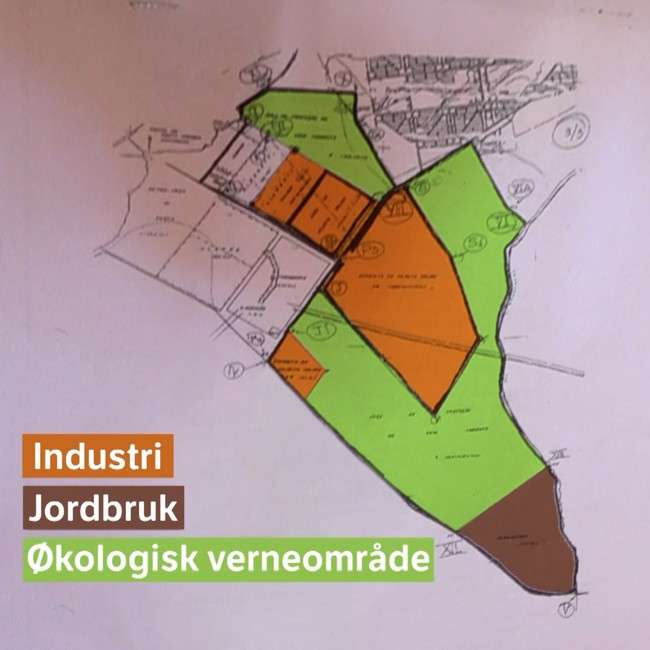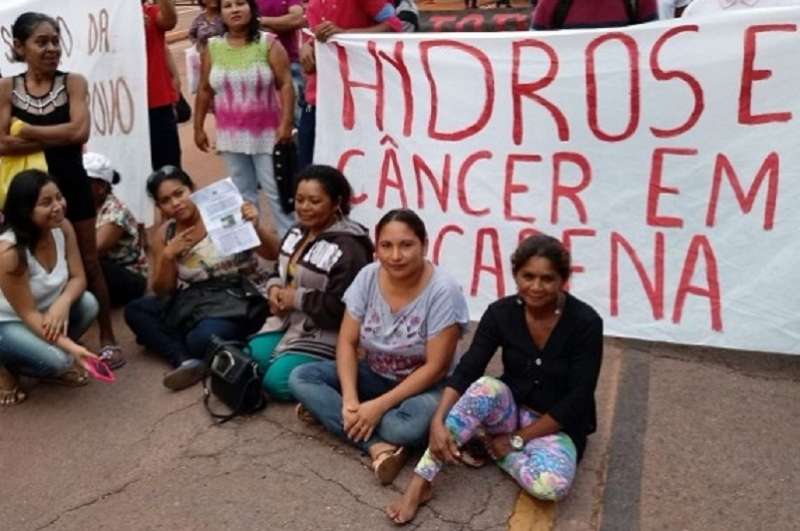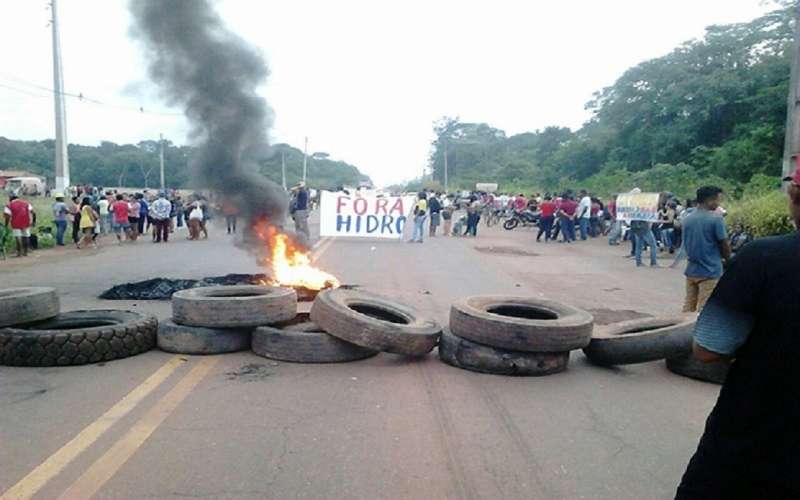By a commentator for Tjen Folket Media
On December 12, 2018, NRK published a comprehensive report on Norsk Hydro’s scandalous year in Brazil. The report provides priceless insights into how Norwegian imperialism manifests itself concretely. Norway is often depicted as an innocent state that has gotten rich from fish and oil. But the scandal in Brazil tells another story.
This has to do with far more than Hydro. In general, it has to do with Norwegian companies and Norwegian capital in the third world. Hydro in Brazil is of course not much worse than Equinor in Nigeria, Telenor in Bangladesh, or Statkraft in Nepal. Revolutionaries in Norway have an important duty in revealing Norwegian imperialism and tearing apart the false images. It is a duty we have to the world’s oppressed peoples and countries, and particularly those who are plundered or directly massacred by the Norwegian state and capital.
NRK calls their case «In Hydro’s Backyard« and the report exposes how the world’s largest aluminum plant, Alunorte, Norsk Hydro’s proud project in the district of Pará in the Amazon Rainforest, is a result of systematic corruption. The mayor of the city of Barcarena, where the plants are located, makes millions on the operations through his own company. The mayor denies this categorically in reports to the media, but NRK writes:
Since 2003, the mayor’s companies have received contracts worth 676 million kroners in total for the construction and maintenance of Alunorte. And after he was elected mayor in 2012, for the first three years he was mayor between 2013 and 2015, Norsk Hydro awarded the mayor’s companies contracts worth 141 million kroner.

But the corruption is just one in a series of scandalous relations. For instance, Norsk Hydro has breached agreements regarding nature reserves and operates heavy industry in areas regulated as protected nature reserves. We emphasize again that all of this is happening in an area commonly referred to as «the world’s green lungs»: the Amazon Rainforest.
The area that Alunorte purchased in 1982 covers in total 4480 hectares. Of this, according to the contract, 2497 hectares are to be set aside as an «ecological reserve», while 536 hectares were to be reserved for «agricultural use».
But the mayor has since then made changes to the communal regulation plans. «Say whatever you want», he tells NRK when he claims that they may do whatever they want with these plans.
Norsk Hydro has bought their way into Alunorte and an industrial area that was established when Brazil was controlled by a military junta. The area was established in the 1980s and the people who had been living there were driven from their lands. Protests were futile. Today, these peoples’ descendants and people who were driven away have come back to the area. They have, for instance, occupied parts of the land that Norsk Hydro owns today. NRK writes about «the old Tauá society that was erased from the map in the 1980s when the Alunorte refinery took over the forest.» Further, they write:
Some of the forcibly displaced peoples were Indians [sic]. Many were quilombolas – descendants of African slaves that escaped the plantations several hundred years ago and found their freedom in the Rainforests of the Amazons.
They also write:
Nazare was just a little girl when she and her family needed to move. Their home and traditional lands lay exactly where the Hydro Alunorte refinery is today.
«I was seven years old when we needed to abandon our land. The tractors and bulldozers were already there, ready to tear down our homes and crops. My father was illiterate. The company forced him to sign with only his fingers,» says 44 year old Nazare.
NRK writes that there are 180 families currently fighting to return to their land. Hydro’s local spokesperson reassures NRK that Hydro can simply remove these families if they appear anywhere on the land. It is Hydro’s land, he maintains.
NRK also writes about emissions and pollution. They write that people have reported health problems and that the water has become too unsafe to drink. Environmental authorities have published a report verifying these problems, but Hydro has made their own report that claims that the problems do not exist.
The new democratic newspaper A nova democrazia has written many articles and reports from the city of Barcarena. In one of these published in March 2018, they write:
Hundreds of residents of Barcarena, an urban area of Belém, pitched camps in front of Hydro to protest the polluting of the water… With banners and posters, the people of the affected community demanded an end to the mining operations in the region, and protested the incompetence of local politicians.

Kjære leser!
Tjen Folket Media trenger din støtte. Vi får selvsagt ingen pressestøtte eller noen hjelp fra rike kapitalister slik som rasistiske “alternative medier”. All vår støtte kommer fra våre lesere og fra den revolusjonære bevegelsen. Vi er dypt takknemlige for dette. Vi overlever ikke uten, og du kan gjøre ditt bidrag ved å støtte oss med det du kan avse.
